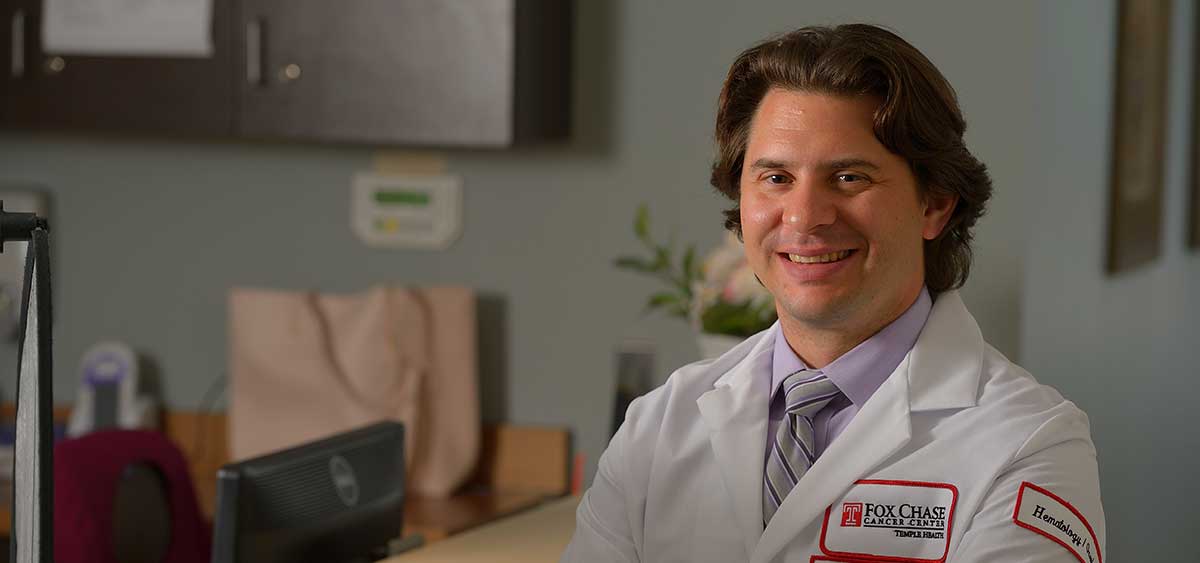
PHILADELPHIA (May 14, 2021)—In a recent study, researchers at Fox Chase Cancer Center found that there are major limitations in using cystoscopy for predicting the presence of muscle-invasive bladder cancer in patients who are candidates for bladder removal.
A cystoscopy is an endoscopic procedure that allows surgeons to examine the lining of the bladder to monitor, treat, or diagnose different conditions.
“The idea of this study was if we took all of these patients and, in a standardized way, looked into their bladder with surgeons who have a lot of expertise, we thought we could show that we can predict quite well who has disease left inside the bladder and who doesn’t,” said Matthew R. Zibelman, MD, first author on the study and an assistant professor in the Department of Hematology/Oncology at Fox Chase.
This is important since some 30% of bladders that are currently removed do not harbor residual cancer after administration of chemotherapy. The study showed that 25% of people who appeared to have completely clean bladders through cystoscopy actually harbored muscle-invasive disease that could be observed when the bladder was removed.
“There were reports over the years stating that you could miss tumors through endoscopic assessment. Yet, the issue was never approached systematically and tackled in a standardized way,” said Alexander Kutikov, MD, FACS, chief of the Division of Urology and Urologic Oncology, who was the primary investigator for the trial.
In the study, 61 bladder cancer patients underwent endoscopic assessment before receiving curative bladder removal surgery. The results of the evaluation were compared with pathology after bladder removal.
“There are submucosal tumors that are latent in the bladder walls that you can’t see from the inside. It’s like looking in a room and there’s something behind the wallpaper,” said Kutikov.
“This is a novel finding that was surprising. I anticipated that the retrospective literature was overestimating the risk. But there is a risk, and this helps us design further clinical trials and helps us find research directions to overcome this barrier,” he added.
The authors noted that future efforts should be aimed at developing new imaging and biomarker methods to improve evaluations before the bladder is removed. Developing more effective strategies in these areas could lead to better decision-making and could help patients forego unnecessary bladder removal surgeries, they wrote.
The study, “Cystoscopy and Systematic Bladder Tissue Sampling in Predicting pT0 Bladder Cancer: A Prospective Trial,” was published in The Journal of Urology.